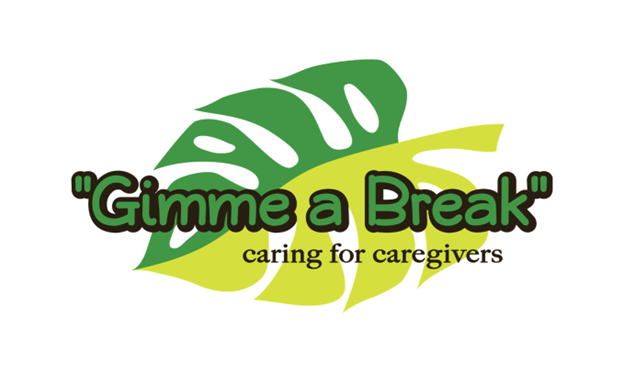
Mild Cognitive Impairment
Symptoms:
- Difficulty coming up with words or following a conversation
- Missing appointments or social events
- Trouble finding their way around places they know well.
- Finding it hard to make decisions, finish a task or follow instructions
Resources & Recommendations:
-
Talk to a healthcare provider
If you or a loved one are noticing signs of memory loss or cognitive changes, it is important to speak with your healthcare provider. Early diagnosis of dementia can help with planning and can slow the progression of the disease with the right lifestyle interventions.
-
Potential disease modifying treatments
Although there is currently no cure for dementia, there are disease-modifying treatments in clinical trials that may help slow its progression. Talk to your healthcare provider to learn more.
-
Planning Ahead
Since dementia is a progressive disease, it’s important to make plans early while you or your loved one can still make decisions. This includes setting up an advance healthcare directive and assigning a power of attorney.
-
Advance Care Planning
Advance care planning involves discussing and preparing for future decisions about your medical care. This helps to ensure that your wishes are honored if it becomes difficult to communicate and make decisions as the disease progresses.
-
Start the Conversation
Talk with family and loved ones about the dementia diagnosis and your plans for the future. These conversations can help to ensure that your family and loved ones are respecting your wishes and can make the right decisions for you.
-
Advance Healthcare Directive
Having an Advanced Healthcare Directive allows a person with mild cognitive impairment or early stage dementia while they are still able to. This allows you to specify what type of treatment you’d like, ease the decison making burden on your family, and help to plan for the later stages of dementia.
-
Power of Attorney
Designating someone as power of attorney gives them the legal ability to make decisions for you. It’s best to choose someone trustworthy and have conversations about preferences early on.
-
Financial guidance
Dementia care can be expensive, so it is important to have an understanding of how to manage costs. Explore options such as Medicare, Medicaid, or long-term care insurance to find the option that’s best for you and your situation.
-
Place safeguards on finances and ask trusted people for support
Dementia increases the risk of financial vulnerability, so setting up protections early is essential. Trusted family members or professionals can help manage accounts, monitor for fraud, and ensure bills are paid.
-
Home safety tips
As dementia progresses, the risk of falls, confusion, and wandering increases. It can be beneficial to modify the home by ensuring accessibility for bathrooms, removing clutter, disguising exit doors, and color contrasting.
-
Develop your care team
A strong care team for someone with dementia may include doctors, home health aides, social workers, and family caregivers. Building this team helps ensure the best care for the person with dementia as needs evolve.
Resource Library
AARP
Education, webinars, trainings, advocacy, online info
- Types: Education & Training, Info & Resources, Specializing in Advocacy
- Stages: Before
-
Areas:
Online, Statewide, Hawaii, Kauai, Maui, Oahu
Headquarters: State Office on Oʻahu -
Contact:
Gary Simon, Keli’i, Jackie Boland
Alzheimer’s Association Hawaiʻi Chapter
support groups, counseling, educational presentations, resources and info on website
- Types: Education & Training, Guidance & Counseling, Info & Resources, Support Groups & Community, Specializing in Advocacy
- Stages: Before, Early, Middle, Late
- Areas: Oahu, Hawaii, Maui, Kauai, Statewide, National, Online
-
Contact:
LJ Duenas, Ivy Castellano, Coby Chock. To register for support group, please call 808.518.6651.
Geriatric Workforce Enhancement Program
dementia education-training
- Types: Education & Training, Support Groups & Community
- Stages: Before, Early, Middle, Late
- Areas: Oahu, Hawaii, Maui, Kauai, Statewide
-
Contact:
Dr. Aida Wen, Dr. Kamal Masaki, Sara Tompkison, Dr. Ritabelle Fernandes, Miquela Ibrao
Kula No Na Poʻe Hawaiʻi
several community based research projects; ʻAuamo Ke Kuleana O Nā Maʻi Poina = Carrying responsibilities associated with Dementia; I Kua Na’u (Advance Care Planning)
- Types: Education & Training
- Stages: Before, Early, Middle, Late
- Areas: Oahu
-
Contact:
Adrienne Dillard PhD, Puni Kekauoha, Mahealani
Tutus House
education, community, activities
- Types: Education & Training, Support Groups & Community
- Stages: Before, Early
- Areas: Hawaii
-
Contact:
info@tutushouse.org
808-885-6777
View More Resources
Select the stage of dementia your person is in. This will take you to resources curated for caregiving in that stage.
Early Stage Dementia
Early stage dementia is characterized by difficulties with executive cognitive functions like planning and judgment, problem-solving, abstract thought, grasping the “big picture,” and performing complex tasks that were previously manageable.
Mid Stage Dementia
Mid-stage dementia involves increased memory loss for personal history and recent events, confusion about time and location, a tendency to wander, and the emergence of personality and behavioral changes such as suspiciousness, delusions, or repetitive behaviors.
Late Stage Dementia
In late-stage dementia, individuals require constant care for daily activities, lose awareness of their surroundings and recent events, experience physical decline affecting mobility and swallowing, and become more susceptible to infections like pneumonia.
Support Groups & Upcoming Events
Gimme A Break offers free support, resources and more through our Weekly Support Sessions, online and in-person every Tuesday evening Join our Community! Do it for you! You are never […]
July 9th from 9:00 am - 10:00 am
Lewy Body Dementia: Navigating Diagnosis, Care Strategies, and Essential Support
This webinar will cover key aspects of Lewy body dementias (LBD), including symptoms, diagnosis, and care considerations, while highlighting the real-life experiences of a former care partner who navigated the complexities of LBD within her own family.
July 12th from 10:00 am - 12:00 pm
Project Dana Caregiver Support Group
Project Dana’s Caring for the Caregiver (C4C) program offers services to family caregivers and soon to be caregivers. The goal of the program is to help alleviate the stress that […]
Sign Up for Our Email Newsletter
Receive News, Alerts & Updates via Email

